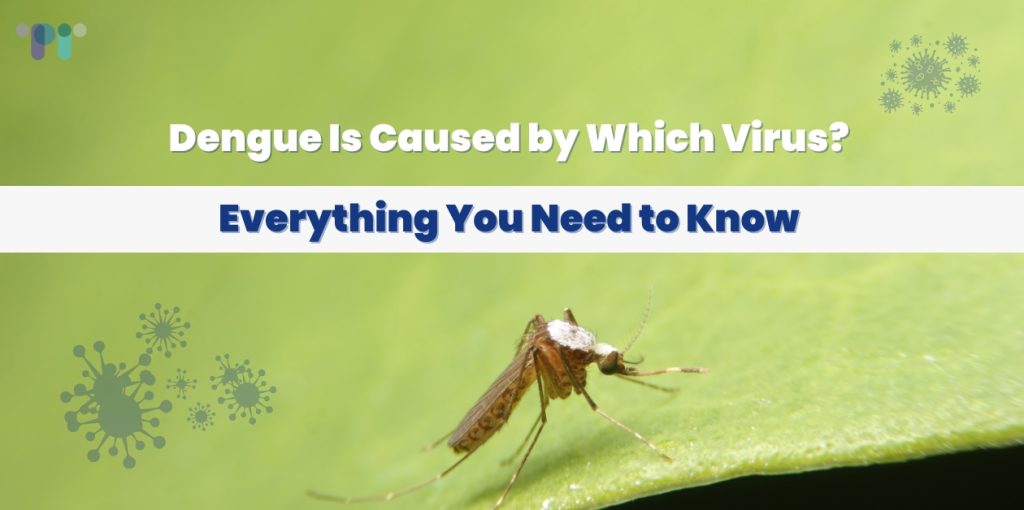Dengue Is Caused by Which Virus? Everything You Need to Know

Dengue is a fast-spreading, mosquito-borne illness that impacts millions of lives globally every year. But what exactly causes dengue? Here’s everything you need to know about the Dengue virus, its spread, symptoms, treatment, and current trends.
Dengue Cases: Last Year Statistics
- India overall: Dengue cases rose by approximately 10% compared to previous years.
- State level (Telangana): Reported a 12% increase in dengue cases in 2024.
- Hyderabad City: Saw a significant surge with an approximate 15% rise in cases, particularly during the post-monsoon months.
Key Factors:
Urban crowding, poor drainage systems, and stagnant water sources contributed heavily to the spike in Hyderabad.
What Causes Dengue?
Dengue is caused by the Dengue virus (DENV), which belongs to the Flavivirus genus. There are four different serotypes of the virus: DENV-1, DENV-2, DENV-3, and DENV-4.
Infection with one type typically grants lifelong immunity against that particular strain—but only short-term protection against the others. That’s why it’s possible to contract dengue multiple times.
How Does Dengue Spread?
The Dengue virus is primarily transmitted through the bite of infected mosquitoes, which are most active during early morning and late afternoon.
The virus is picked up when a mosquito bites an infected person and then spreads to others through subsequent bites.
Common Symptoms of Dengue
- Severe headaches
- Pain behind the eyes
- Joint and muscle pain
- Fatigue and extreme tiredness
- Skin rash
- Nausea and vomiting
- Mild bleeding (such as from the nose or gums)
If not treated early, severe dengue (also known as dengue hemorrhagic fever) can cause dangerous complications like internal bleeding, organ failure, and even death.
When to Seek Immediate Medical Help
Seek urgent medical attention if you experience:
- Persistent high fever
- Severe abdominal pain
- Continuous vomiting
- Bleeding from nose, gums, or under the skin
- Fatigue that worsens significantly
Early diagnosis and proper supportive care can greatly reduce serious risks.
Treatment for Dengue
Currently, there is no specific antiviral treatment for dengue. Management focuses on supportive care, including:
- Plenty of rest to help the body fight the infection
- Hydration, either through oral fluids or IV preparations if dehydration is severe
- Healthy, balanced diet to strengthen immunity and aid recovery
Warning: Avoid taking non-steroidal anti-inflammatory drugs (NSAIDs) like ibuprofen, as they can worsen bleeding. Always consult a doctor for the correct medication.
Dengue Prevention Tips from PI Health Hospital
Since no specific cure exists, prevention remains critical:
- Apply mosquito repellents regularly.
- Wear long-sleeved clothing and full-length pants.
- Eliminate standing water around your home where mosquitoes breed.
- Use mosquito nets and screens to stay protected indoors
Trust PI Health Hospital for Expert Dengue Care
At PI Health Hospital, we are dedicated to fighting dengue through early diagnosis, expert care, and community awareness programs.
If you are experiencing symptoms or want to know how to protect yourself and your family, book a consultation with our experienced healthcare team today.
About Author
Dr. Y Swetha
MBBS , MD (General Medicine)
Dr. Y Swetha is a skilled physician currently practicing at PI Health Cancer Hospital. She holds an MBBS from Kamineni Institute of Medical Sciences and an MD in General Medicine from Prathima Institute of Medical Sciences.Dr. Swetha has extensive experience in outpatient, inpatient, emergency, and critical care settings. She is proficient in managing chronic conditions, critical emergencies, and advanced procedures such as ventilator management and catheter placements.

